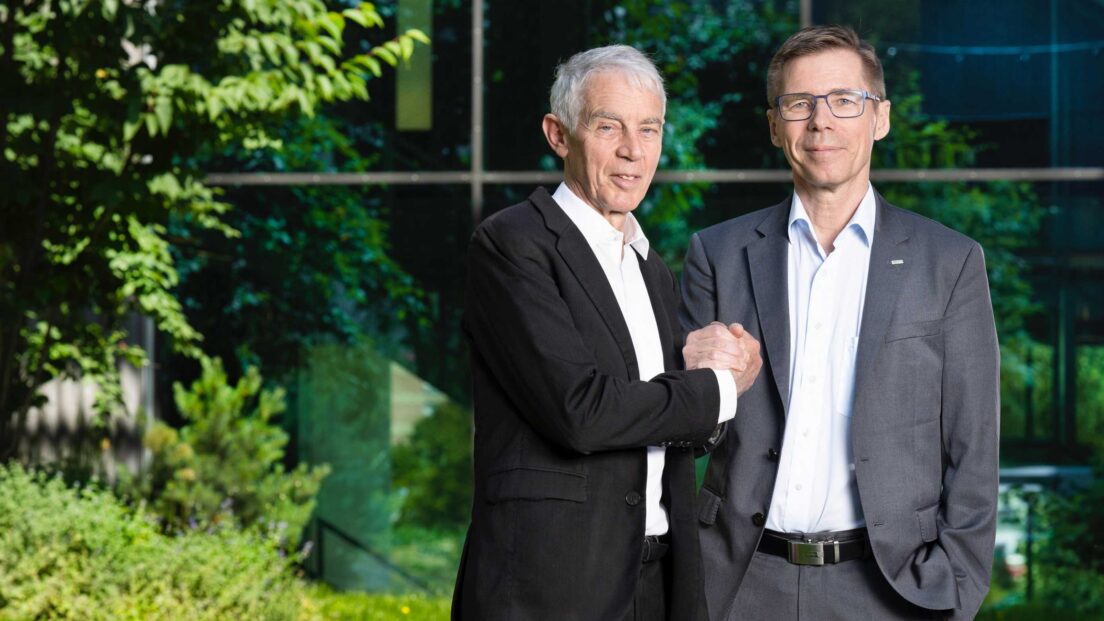ETH Zurich and EPFL launch green energy coalition

Together with partners from politics, science and industry, ETH Zurich and EPFL want to advance solutions for the storage and transport of renewable energy sources. The goal: a climate-neutral and flexible energy system for Switzerland. Around 20 partners and industrial companies have already expressed their interest in working together.
Switzerland is facing a combined energy and climate crisis. In order to achieve the set net-zero target by 2050 and at the same time avoid an energy gap, the country is dependent on renewable energy sources, seasonal storage options and an efficient connection to the European electricity market. In addition to pumped storage power plants, batteries or heat storage, synthetic fuels and gases such as hydrogen in particular offer an interesting way to store, transport and trade cheap electricity from photovoltaic plants in the summer for the winter. There are numerous promising technologies that are currently under development but not yet fully operational. This is where the “Coalition for Green Energy and Storage” comes in, which was publicly presented on 8 June at the Swiss Economic Forum in Interlaken.
“With the coalition, we want to quickly bring existing technologies for CO2 capture and for the production and storage of carbon neutral gases and fuels to market maturity and raise them to an industrial level,” ETH President Joël Mesot explains the plan. The goal is to enable a scalable, climate-neutral and flexible energy system within a reasonable period of time.
Wanted: partners from politics, industry and science
Achieving this goal will require a joint effort by science, politics and industry. “The two Federal Institutes of Technology alone have 150 research groups in the field of energy, as well as around 460 researchers and four successful spin-offs in the field of CO2 capture and energy storage. Together with other research groups from PSI and Empa, the ETH Domain has both the know-how and the size to respond to current challenges together with companies,” says EPFL President Martin Vetterli. Now the two universities are looking for technology and implementation partners, as well as donors and supporters from politics and society.
Around 20 companies and organisations have already expressed their interest in working together: Alpiq, AMAG, BKW Energie, SBB / CFF, Carvolution AG, Cemsuisse, Emil Frey Group, Edelweiss, FIR Group AG, Gaznat, Genève aéroport, GE Vernova, Gruyère Hydrogen Power SA, Implenia, MAN Energy Systems, Migros Industry, Romande Energie, Rolex, Swissmem, SWISS International Air Lines, VBSA, Viteos SA, Verband der Schweizerischen Gasindustrie / Association Suisse de l’Industrie Gazière.
With the airline Swiss International Air Lines (SWISS) and the energy service provider Alpiq – who were present at the SEF alongside the two presidents – two heavyweights of the Swiss economy have been on board from the start. “We are proud to be part of this energy coalition. Together, we are driving forward the production of synthetic fuels, which are one of the biggest levers for us to fly ever more sustainably in the future. At the same time, new possibilities for energy storage are being created, which increases Switzerland’s security of supply and serves society as a whole,” says Swiss CEO Dieter Vranckx. The airline needs economic solutions quickly in order to achieve its own climate goals. Synthetic fuels play an important role in this. Alpiq, for its part, has a broad portfolio of hydropower and storage plants in Switzerland and is one of the pioneers in Switzerland with the production of green hydrogen in Gösgen. With numerous projects for the addition and expansion of renewable energies and various storage technologies in Switzerland and neighbouring countries, Alpiq can make a significant contribution: “With a broad coalition of business, science and society, we can achieve the set net-zero target and a sustainable energy supply at the same time. In this way we can strengthen Switzerland as a business and science location,” says Alpiq CEO Antje Kanngiesser, explaining her company’s clear commitment. The well-known philanthropist Hansjörg Wyss has also already pledged his support to the coalition.
Planned: Research platforms in the megawatt range
With new technical solutions, the coalition wants to create additional opportunities to exploit the seasonal differences in electricity production by means of energy storage in Switzerland and Europe. This will improve Switzerland’s security of supply and diversify energy trade with European and international partners, creating new business areas and opportunities for technology start-ups and Swiss industry. The technical options will be analysed systemically in order to find and implement the best possible solutions in terms of supply security and costs.
The coalition will be formally established by the end of 2023 in order to launch the first projects in early 2024. Demonstrators in the megawatt range will be built on the basis of existing technologies, which should be productive from 2028 and will serve as research platforms. A budget of around CHF 100 million is needed for this project in the first phase.